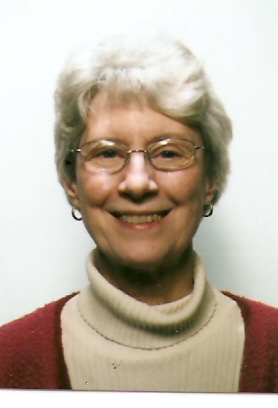The Hope: Grass Roots Bipartisans at Work Right Now
By Susan C. Strong
Labor Day weekend is over, and the Election 2016 countdown is going into overdrive. We're all going to work hard for our chosen candidates of course, but is there any realistic hope that after November 8 our national political life will move beyond the bitter, paralyzed disagreement we have now? Today the scene looks nothing like some relatively recent cooperative eras in our history. According to the Bipartisan Policy Center , in 1973 President Nixon signed the Endangered Species Act, with support from both sides of the aisle. In 1997 the so-called "CHIP" bill to help poor children get health care passed because Senators Kennedy (D-MA) and Hatch (R-UT) collaborated to get it through Congress. Then there's the 2002 McCain-Feingold Act, another joint effort by Congress members of opposing parties. These bills reflect a traditional American understanding of how we need to function as one national political family, a metaphor I've named the One Big Family Frame. Here's a short quote about it, slightly updated, from previous pieces of mine on this topic :
"The One Big Family frame. . . implies a specific, historic American way
of communal problem solving: . . .'pragmatic,' 'solution-oriented,' 'common sense,'
'practical'. . . looking at what actually works and what doesn't, emphasizing what we can
agree on, having a shared goal we work for even if our reasons for wanting the result
differ (for example, saving money vs helping people), working out a 'rough consensus,'
and tolerating each other's differences as part of a traditional American respect for
variety, individuality, and a legitimate difference of views."
Doesn't sound
much like what's happening now, does it? Yet deep in the American countryside,
there is an important and growing phenomenon that is already bringing the "one
big family frame" back to life. It's a
story seldom reported in the mainstream media, so saturated with election
horror stories and dire predictions of what comes afterwards. So along with our
election work, let's spread some good news about the rebirth of grass roots
bipartisanship happening in our country right now. We should start it "trickling
up" before November 8. That extra bit of hope could also give us more
creative juice after November 9, as we start pushing for a better world again.
Where to start telling the grass roots bipartisanship story? Earlier this year
I cited a few examples and sources in my blog "U.S.A. 2016:
Death Spiral or Rebirth?" from Mark Gerzon's report on grass roots American
bipartisans all over the country, The Reunited
State of America .
In that piece I mentioned one particular example of this new
trend, which the media with its love of negatives and conflict doesn't report. That example was The Bridge Alliance, a national
group started by college students fed up with our hyperpartisan paralysis. But there's even more exciting news now. This
August Mark Gerzon, along with Joan Blades, Amanda Kathryn Roman, co-founders
of Living Room Conversations and Stephen Dinan of the Shift Network, put together a free, four day online conference called The American
Citizens Summit , based on Gerzon's book. (You can sign up on the site for the next
Summit.)
This wasfollowed by a multi-week week online training course on how to
create local grass roots bipartisan efforts, led by experienced mediator
Gerzon.
The conference sessions were rich with a
variety of stories about local citizens reaching
out to others in their own communities. Some hold conversations guided by
ground rules like neighborly friendliness, respect, listening to others with an
open mind, curiosity, fairness, and a thoughtful use of language (more on this
point in a future post). These conversations can bear surprisingly powerful
fruit. Joan Blades, co-founder of Living Room Conversations,(LRC) tells the
story of how the growing national consensus about criminal sentencing reform
grew out of one of the conversations she co-hosted with Mark Meckler, founder
of the Tea Party Patriots. (You can find many other stories and even recorded
sample conversations, plus directions and suggested topics on the LRC website.)
Other community level projects of this kind include The Village Square, founded by Liz
Joyner in Tallahassee, Florida and now in other states too. Liz spoke of her
successes with this approach, starting with local issues like parks or schools
that don't have an obvious partisan slant.
Everyone agreed that after people get more comfortable with each other
in person, advancing to fruitful conversations about more challenging issues
works surprisingly well. A solutions focus, looking for areas of agreement, and
serving food or snacks helps bring out the best in people. The conference included
some actual examples of "transpartisan" conversations.
The topics covered were homelessness, the future of defense, big money in
politics, spiritual evolution and politics. It was intriguing to hear the way
this thought-provoking format helped bring out a much wider range of ideas than
we are used to hearing in political debate these days. And more ideas always lead
to better solutions. One of our biggest problems today is that folks think they
already know everything about an issue. The long overdue criminal justice
reform effort going on in our country today is a good example of what can
happen when people open up and begin looking deeper.
There's another very handy place to get more ideas from a wide range of folks
too. The conference included presentations from leaders who run online projects
that help people get informed, connected, and into dialogue with each other. These
"civic tech" sites include The Chisel, All
Sides,
and Democrosoft . The
Chisel ,
taglined "Creating a More Perfect Union," offers "trending proposals from
nonpartisan groups" on a wide variety of issues for you to explore. You can
join in a "conversation" about them online, and then vote. You can ask the
experts questions, share stories, suggest improvements, or reply to another
citizen or expert before deciding on your vote. You can even change your vote
later. All
Sides
provides "diverse perspectives in news and issues," and invites
you to "engage in critical thinking and civil dialog." They promise to provide
multiple angles on every story, so you can quickly get the full picture, not
just one slant." Democrosoft is a provider of "social
collaboration and voting platforms for online communities." They offer four
online collaboration applications found on a common platform called
Collaborize. Their "flagship" education platform, Collaborize
Classroom, provides curriculum and content delivery to
students worldwide.
Of course, it takes time to engage in any of these activities, as well as some
confidence that it will make a difference if we do. Helping citizens gain the
skills and confidence to engage directly with their own local governments was
another important thread in the conference. We heard leaders of regional,
state, multi-state and national bipartisan outreach projects talk about how
they help citizens and their political representatives learn to use a variety
of tools for interacting more effectively with each other in order to get
improved public policy. The Davenport
Institute for Public Engagement , (at Pepperdine, CA) focuses on helping
Californians learn to be more effective
at the city, county, regional and nonprofit level, while Healthy Democracy includes the Citizens' Initiative
Review, a process for voters to get an honest, nonpartisan evaluation of ballot
initiatives in an era when big money has radically skewed the PR about them.
Beginning in Oregon, the Review now functions in Massachusetts and Arizona as
well. The
Participatory Budgeting Project works with local organizations and
governments to change how public money is managed, by helping citizens get more
direct say about what their public money buys. The Participatory Budgeting
Project has been active in U.S. cities from San Francisco and Long Beach to St.
Louis, Boston, and more. Then there's the National Conference
on Citizenship
(NCoC). They focus on improving "civic health," that is, the health of citizens'
efforts to "define and address public problems." They measure how much people
trust their neighbors, get active in their communities, and interact with their
local governments. The indexes the NCoC
creates show what's working and what's not, and suggest ways to improve civic
health.
All of the speakers on citizen empowerment agreed on one big thing that would
improve American civic health right away: restoring Civics education to
American schools. Making Democracy Fun: How Game
Design Can Empower Citizens and Transform Politics,
by Josh Lerner, might help make that happen. (Online resources for this book
include a YouTube video as well.) All in all, the picture of grass roots
bipartisanship thriving below the national radar was
extremely encouraging. Two well-known journalists have also recently reported
that people in the grass roots are not nearly so helpless, angry, despairing or
depressed as the national media would have us believe. After a three year cross
country investigative trip with his wife Deborah, James Fallows wrote about "How
America is Putting Itself Back
Together," (for the March
2016 Atlantic ). Their research showed that a great many of our smaller cities
and towns are actively engaged in a vigorous local renewal that includes economic,
cultural, and civic projects, led by citizens who collaborate peaceably to
solve their local problems. The big problem, Fallows notes, is that each place
believes it is unique in this way, unaware that our grass roots, American "can
do it together" spirit is a growing national trend right now.
"Solutions
journalist" Sarah van Gelder, co-founder and editor
at large of YES!
Magazine, also discovered real news
about what's up in the American grass roots. Leaving in
August 2015 for her own year-long, 18 state cross-country investigative tour, she
found people all across the land collaborating to start local businesses,
nonprofits, cooperatives, land trusts, food hubs, urban farms, and many other
projects to revive their local economies and communities. But her most
important observation may be noticing the empowering role of human-scale, civil,
neighborly, face-to-face contact in dealing with local problems, so different from
the over-simplified, abstract, and rigid world of national politics. (Sarah
van Gelder has reported regularly all year for YES! Magazine about her
findings, and her book, The
Revolution Where You Live: Stories from a 12,000 Mile Journey Through a New
America, will be available on the YES! Magazine website by November 1, and
in bookstores by January 9, 2017.)
The fact that all kinds of grass roots
Americans are actually working together successfully to solve their problems
puts to shame those national political power barons and media CEOs who try to exploit our differences in order to
stop progress, for their own personal gain. Taken all together, this burgeoning American
"reinvent it from the ground-up" movement is actually the perfect antithesis of
the "break everything, do nothing, corporate funded destroy government" wave
that has paralyzed Washington for so many recent years. It proves that a new version of the One Big
American Family frame is still alive, well, and getting back on its feet in our
country, rooted in local ground, where real reform always starts in the U.S. We need to spread the word about this
American rebirth everywhere, so that
local folks learn that they are all actually part of a huge wave of American renewal,
rising all over our country. We can help it get such a high profile that the
media and our national politicians will be forced to take note and listen. There's
a mandate coming from real, down-home Americans for "solutions-focused" politics. And that's exactly
what it will take to move our country forward again. Let's start getting the
word out now, and then really pour it on after 11.08.16!
----------------------------
Susan C. Strong, Ph.D., is the
Founder and Executive Director of The Metaphor Project, http://www.metaphorproject.org, and
author of our book, Move Our Message:
How to Get America's Ear. The
Metaphor Project has been helping progressives mainstream their messages since 1997.
Follow Susan on Twitter @SusanCStrong
and check out her TEDx talk too.






